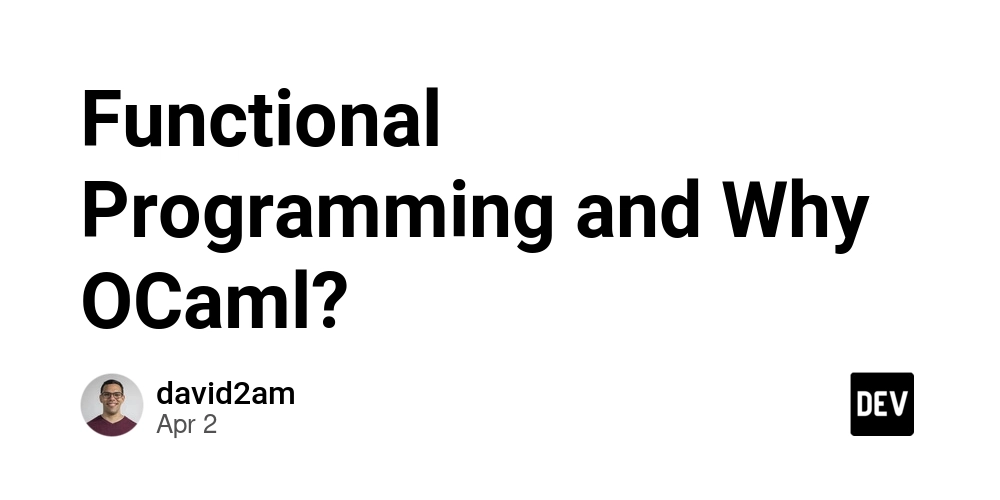Dev
3w
277

Image Credit: Dev
Functional Programming and Why OCaml?
- Functional programming (FP) is a declarative way of writing programs, focusing on the result rather than implementation details.
- In FP, everything, including functions, is treated as expressions, simplifying the program structure.
- Core principles of FP include avoiding side effects, shared state, and promoting immutable data.
- Functional programming utilizes expressions, lexical scope, pure functions, and first-class functions as cornerstones.
- Lexical scoping ensures variable scope resolution at compile time, enhancing code predictability.
- Pure functions have no side effects and consistently return the same output for the same input.
- First-class functions enable passing functions as arguments, returning functions, and assigning functions to variables.
- FP excels in concurrency and parallelism due to safe parallelization, data sharing, and thread safety practices.
- OCaml, a functional language, balances FP principles with mutable data when necessary for better performance.
- OCaml's strong type system enhances code correctness, readability, and security by detecting errors at compile time.
Read Full Article
16 Likes
For uninterrupted reading, download the app